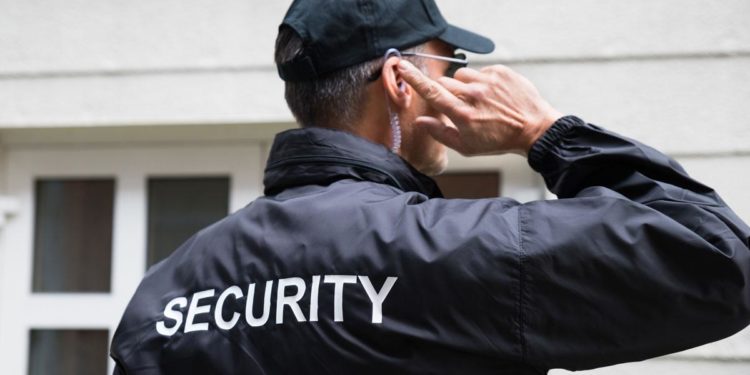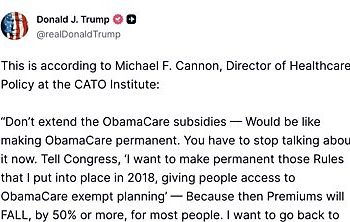After the recent spate of retail thefts and looting, Chicago mayor Lori Lightfoot chided businesses for not doing enough to protect themselves from theft. Fox 32 Chicago quotes her:
We also got to push retailers. Some of the retailers downtown and [on] Michigan Avenue, I will tell you, I’m disappointed that they are not doing more to take safety and make it a priority. For example, we still have retailers that won’t institute plans like having security officers in their stores, making sure that they’ve got cameras that are actually operational, locking up their merchandise at night.
In one sense, this admonition (or rather the implicit admission behind it) should be welcomed by those who care about property rights. Some conservatives have responded to Lightfoot by asking, “Isn’t enforcing property rights the core function of government? If this is her attitude, why even pay taxes?” However, it is an ahistorical fantasy to think that Americans have ever been able to depend on the state to meet all of their security needs. Lightfoot acknowledges this, perhaps unwittingly.
But if she really means it, then there are changes that must be made in order to properly facilitate private actors’ exercise of their rights to property-rights enforcement and self-defense. The most obvious is for the City of Chicago to actually recognize a right to self-defense by not interfering with individuals’ ability to bear arms, rather than being one of the most restrictive places in the US for legal gun ownership.
A necessary complement to legal gun ownership is legal recognition of the right to use them, both de jure and de facto. The wide discretion and unpredictability of district attorneys in their decisions to pursue charges against individuals using arms in clear self-defense can cost tens of thousands of dollars in legal fees even when one is acquitted. Additionally, civil courts’ willingness to entertain bogus lawsuits from criminals against their victims presents an additional risk. Under such conditions, it should be no surprise that some businesses are hesitant to hire additional security officers who might need to use force to defend property. Losses from theft can often be lower than losses from legal liabilities.
For similar reasons, it makes sense why business owners might choose not to repair or replace defunct security cameras (if Lightfoot is talking about an actual phenomenon). In several major cities, including Chicago, prosecutorial discretion has been stretched to its limits in terms of the refusal to prosecute criminals against whom sufficient evidence exists. All the video evidence in the world doesn’t matter if prosecutors offices simply drop cases. It doesn’t make business sense to spend money to make home movies of thieves ripping you off.
In short, what must be fought against are the conditions of (the unfortunately named) “anarcho-tyranny,” in which there is “the simultaneous existence of armed dictatorship and the absence of the rule of law.” If state actors are going to fail in sustaining basic order, the least they can do is stay out of the way of private individuals who protect property rights. It makes no sense to extend Chicago law enforcement officers tremendous protections from liability while also expecting private citizens to protect themselves without the tools to do so and with the legal burden of proof essentially against them.
Lightfoot’s statement is also interesting for what it reveals about progressive political economy. Economists have pretended that policing is a “public good” that is nonrivalrous in consumption and nonexcludable to nonpayers. But it is clearly rivalrous, as police allocated to enforcing mask mandates are not also able to arrest smash-and-grab gangs. It is also highly localized: police in one neighborhood cannot simultaneously be in another.
What this means is that policing is not a general good that is simultaneously available to all. It can be subject to redistribution, just like any other scarce resource the government controls. The logical step in the quest for egalitarian outcomes is to engage in redistributionism, where the politically disfavored provide their own policing (not that the service provided to those who disproportionately receive it is of high quality—like in the case of public schools, where those sending their children to private school pay twice while those unable to afford to do so are subject to low-quality monopolies). This maintains an equilibrium in which governments are able to truthfully claim they are distributing more resources to the less wealthy, while also having somewhat of an escape hatch for wealthier parties. It reduces the workload for public employees. Of primary importance for local politicians is maintaining the support of public employee unions, as they are a more effective lobbying group than parents or victims of crime.
Ultimately, expanding the opportunities for alternatives to state services (sometimes encouraged by absolute necessity, as in Chicago retailers’ case, but also by restructuring public finances, as in the case of school choice) not only improves people’s lives but demonstrates the efficacy of private initiative. The school choice revolution was further spurred by the paltry response of public schools during the pandemic. Perhaps police choice can flourish in the current environment.














